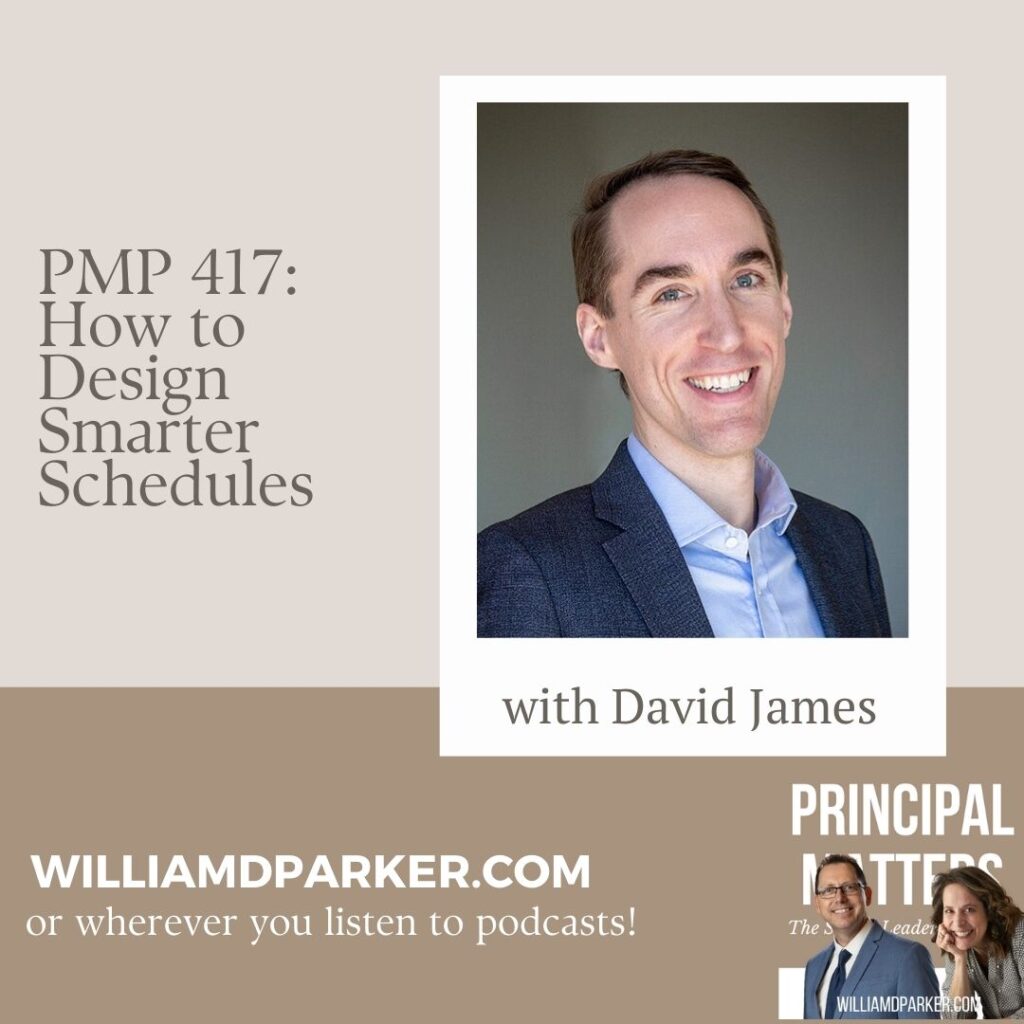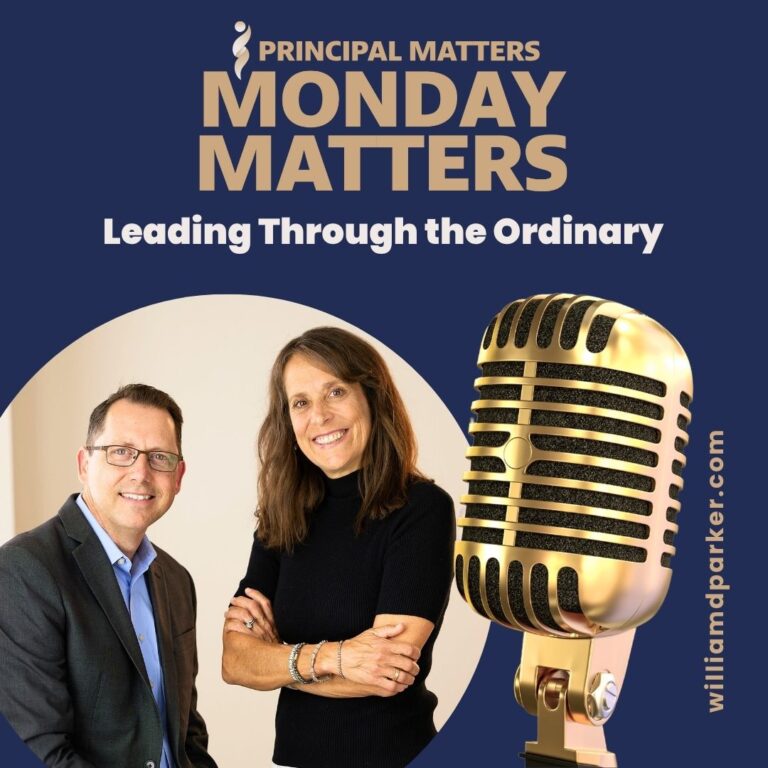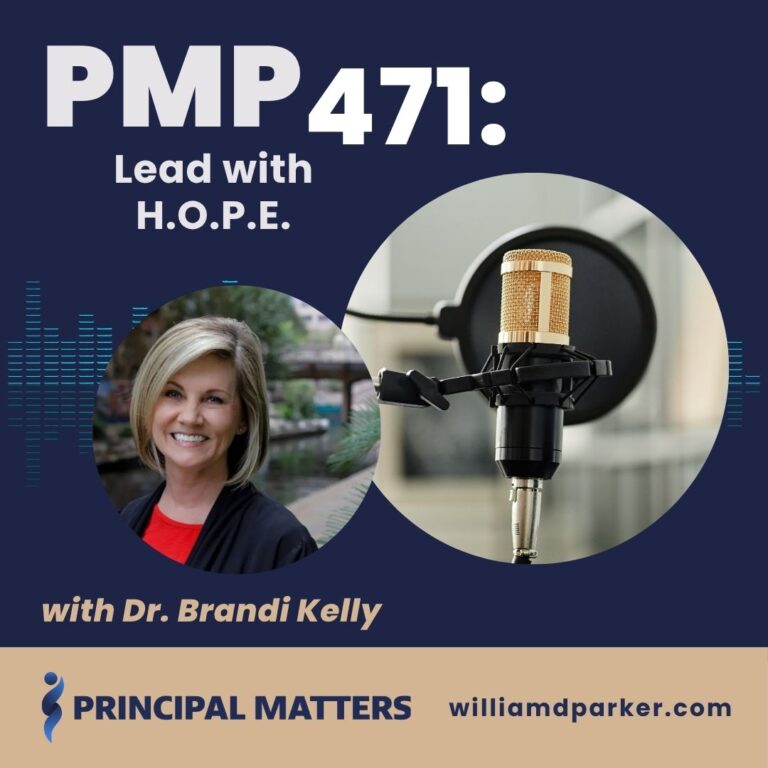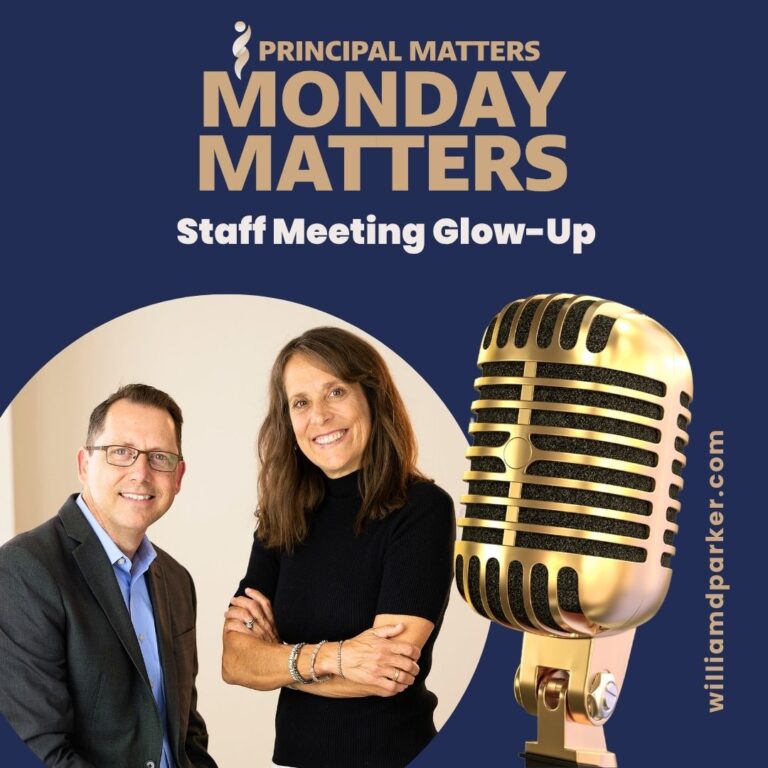Podcast: Play in new window | Download
A quick note to listeners:
Before this week’s interview, Jen Schwanke and Will Parker answered a listener question in a 5-minute response.
The question is: How do you manage displacement conversations after teachers find out they are not returning?
Listen in for our response and thank you for doing what matters!

Meet David James
David is a managing director at New Solutions K12 and brings experience as a teacher, school founder, consultant, school board member, and author to his work partnering with educators. He leads New Solutions’ scheduling and staffing practice and advises schools and districts nationally on how best to design, build, and manage strategic school schedules. He is co-author of the book, It’s Time for Strategic Scheduling: How to Design Smarter K-12 Schedules that are Great for Students, Staff, and the Budget (ASCD).
From Jen Schwanke:
This week’s episode centers around a conversation many principals would like to have and aren’t quite sure where to start— the act of reimagining a school’s master schedule. Our guest, David James, is an undisputed expert on this topic. Jen met David James a couple of years ago at an author’s event, and they have worked together several times since. David is a managing director at New Solutions K12, bringing his experience as a teacher, school founder, consultant, school board member, and author to his work partnering with educators. He leads New Solutions’ scheduling and staffing practice and advises schools and districts nationally on how best to design, build, and manage strategic school schedules. He is co-author of the book, It’s Time for Strategic Scheduling: How to Design Smarter K-12 Schedules that are Great for Students, Staff, and the Budget (ASCD).
What does it take to re-think a school schedule? David provides some insight for any principal who might want to improve their scheduling process and reconsider if they are meeting their intended student outcomes. One component David suggests is that principals be aware of their blind spots. When we’ve always done something a certain way, it takes courage to look outside those norms and think creatively and differently about the schedule. Blind spots might exist in ourselves as the principal, but they also might exist in the team of people who create the schedule—teachers on staff, district leadership, and even community members.
Another component to consider might be how principals might broaden their perspective and see their school’s schedule as a bigger picture based on intentionality. What are your priorities as a school? How do you want to use your time and use your staff? What are your school’s intervention needs? Enrichment needs? One of the things that is finite in building a strong schedule, David points out, is time and staff. In most cases, it’s not possible to just add more minutes to the day or add more teachers to the roster. For that reason, if your school’s schedule needs improvement, it is important to think differently about your schedule’s opportunities within those two constraints.
There is a lot more wisdom in Jen’s conversation with David. This episode opens up new doors for anyone thinking about how they might change, update, or adjust their master schedule to maximize their staff and provide a better learning experience for students.
- Social Media: https://www.linkedin.com/in/david-h-james/
- Website: https://ascd.org/people/david-james




